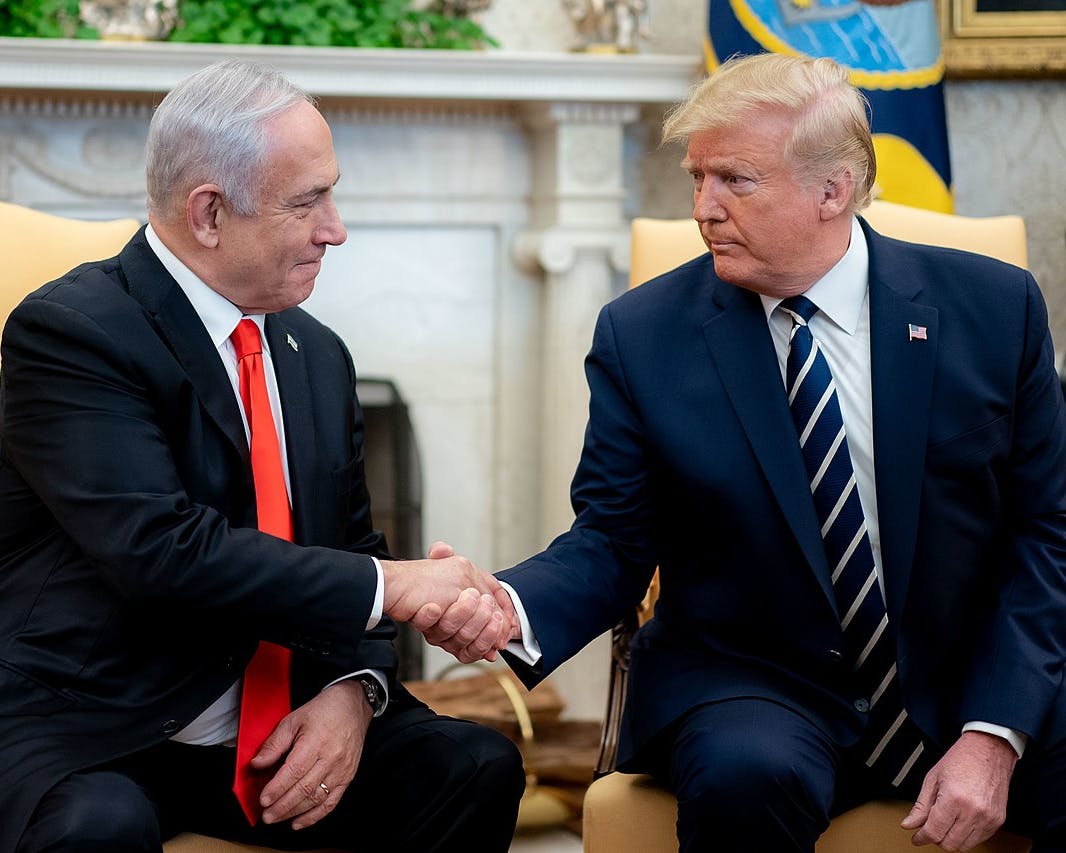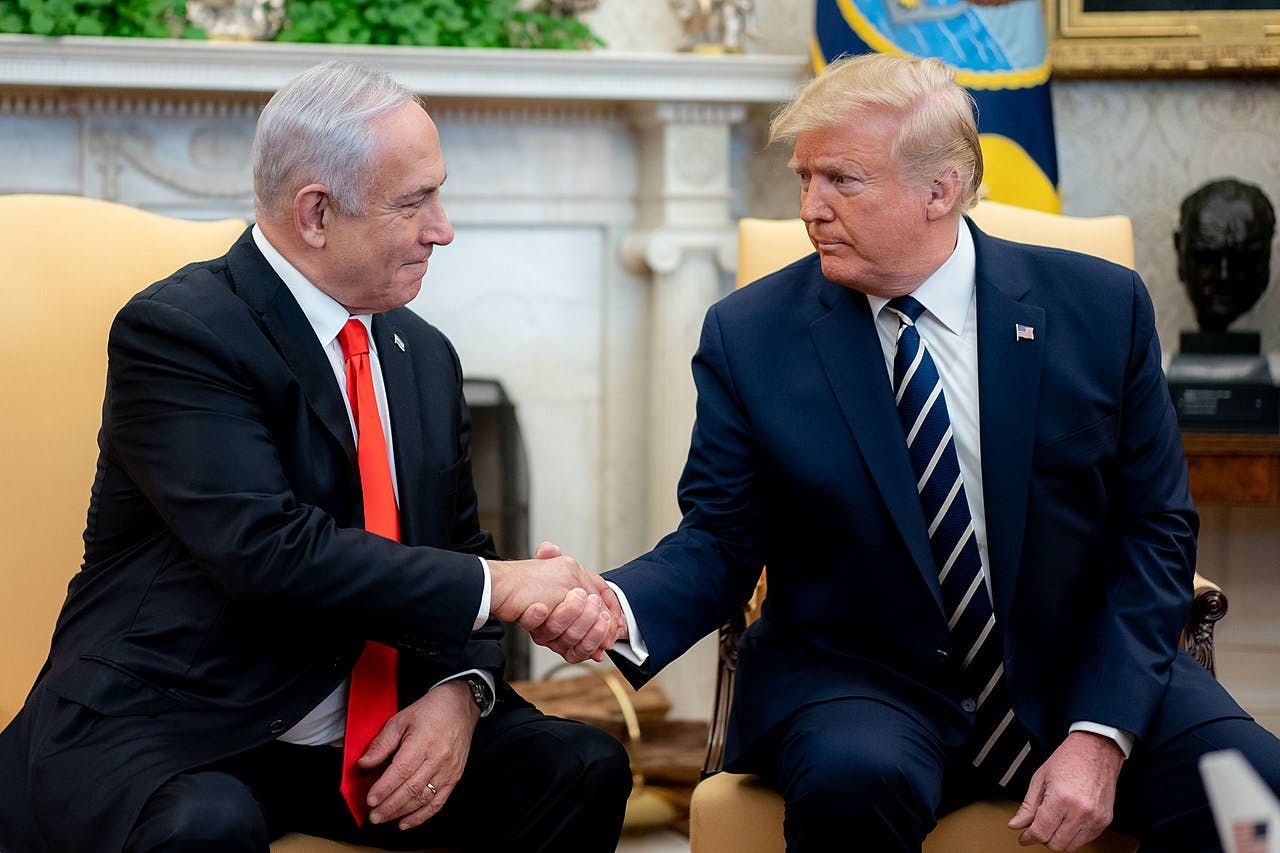Trump Says Hamas Response to Ceasefire Proposal Expected in Next 24 Hours

Friday, 4 July | US President Donald Trump said on Friday that it would probably be known in 24 hours how Hamas would respond to a proposal for a ceasefire with Israel in Gaza. Sources close to Hamas said the terror group was seeking guarantees that a new US-backed ceasefire proposal would lead to the war's end.
In a statement early on Friday, Hamas said it was discussing the ceasefire proposal with other Palestinian factions and would submit its response to mediators once those talks conclude.
The UK-based Saudi-owned Asharq Al-Awsat reported on Friday that Hamas was more accepting of the terms of the latest proposal because they set a clear mechanism for IDF troop withdrawal from Gaza and for the distribution of aid.

According to the report, there was an understanding in Hamas that they would have to consider Israel's demands, including that Hamas would not continue to rule the Strip, it would have to disarm and that those responsible for the October 7 massacre would be deported.
Officials told the publication that Hamas appeared willing to agree to a symbolic and temporary removal of some of its senior members from Gaza.
Channels affiliated with Hamas reported Thursday evening that the terror group has responded positively to the new proposal for a hostage deal. At the same time, in Israel, the political-security cabinet is meeting with significant decisions on the agenda, including the question of continuing the fighting in Gaza, ending it with a "comprehensive regional agreement"—or, again, a temporary and partial deal.
Earlier, sources close to the terrorist organization said that it would give a "positive response" to the proposal, which initially includes a 60-day ceasefire with the release of 10 live hostages and 18 dead. It is important to note that, so far, there are no details about what Hamas' response included, and what the conditions were, and an official statement has not yet been published.
In Israel, it was estimated that the terrorist organization would create difficulties, since "like everything, Hamas will fight over the names of the terrorists or the keys because that is the way of the world with them."
Meanwhile, Prime Minister Benjamin Netanyahu, according to ministers, is striving to end the war, while in the background US President Donald Trump continues to press for an agreement—and even told released hostage Edan Alexander and his family during a meeting Thursday at the White House that "we will close the deal."
Trump reportedly hopes to announce a finalized deal during his meeting with Prime Minister Benjamin Netanyahu in Washington on Monday.
Last week, IDF Chief of Staff Maj. Gen. Eyal Zamir said that the IDF is close to reaching the goals it has defined for itself, and from there, "options for action will be developed and presented to the political echelon." In Israel, too, voices have been growing that talk about ending the campaign in the Gaza Strip. IDF spokesman Effie Defrin addressed this on Thursday in a statement to the media, saying that "in the near future we will achieve the goals of Operation Gideon's Chariots, the current phase of the Gaza war, and we will present the political echelon with a number of alternatives to move forward. The political echelon will define for us what to do and we will act accordingly."
Earlier Thursday, senior cabinet officials who spoke with Netanyahu said that he "very much wants and is determined to reach a deal at almost any cost," and that he believes that the political window of opportunity in which Israel now finds itself "happens once in a generation." In closed talks, they say, the prime minister says that "we have rare, unimaginable political opportunities before us." As they understand it, Netanyahu is now striving for an agreement that will see Israel not return to fighting in the Gaza Strip—with the release of all the hostages on the agenda, alongside completing the amorphous goal of "defeating Hamas," and agreements with Saudi Arabia, Syria and possibly other countries.
In the background, the person who is pressuring Israel and Hamas time and again to reach agreements regarding a ceasefire is Trump, who has made a series of statements on the subject in recent days—and is also putting pressure on Qatar. According to senior Israeli officials, the US president is even aiming to announce that the agreement has been concluded during his meeting with Netanyahu in Washington on Monday.
Israel is preparing for the possibility of “proximity talks” with Hamas—indirect negotiations facilitated by mediators. They believe that under intense pressure from Trump on Qatar, and from Qatar onto Hamas, such talks could yield results, even if not immediately.
As negotiations advance, families of 35 hostages sent an urgent letter to Netanyahu demanding a comprehensive agreement. “Anything short of that would be a grave failure and a historic tragedy,” they wrote. “The era of partial and selective deals is over.”
The letter, published by the Hostages and Missing Families Forum following Netanyahu’s first visit to Kibbutz Nir Oz since the October 7 Hamas massacre, was also sent to Minister Ron Dermer, head of Israel’s negotiating team, ahead of the prime minister’s trip to Washington.
At the same time, six coalition Knesset members, including some from Netanyahu's Likud party, sent their letter to Netanyahu and cabinet ministers demanding the complete defeat of Hamas and full Israeli control over Gaza. They warned that any other outcome would pose an “existential threat to the State of Israel” and insisted they would not support any path that falls short of total victory. “This is our red line,” they wrote. They added that they "expect support from the United States."
Against this backdrop, Israel is at a significant crossroads. The military presented the cabinet with three options for moving forward in Gaza: a hostage deal; a full occupation of the Strip, risking their lives and the lives of soldiers; and a siege until surrender and opening additional distribution points for humanitarian aid—something that has very large budgetary costs and requires months of preparation.
Netanyahu said in the debate that a deal must be reached by force. The ministers are under the impression that this time he is also free from political pressure, given that he is planning for upcoming elections, which he wants to reach after completing an unprecedented diplomatic move, one that will also qualify for the Abraham Accords.
Behind the scenes, it seems that the political threats are less frightening to Netanyahu. The coalition understands that Ben-Gvir—who has already opposed hostage deals twice—will oppose this time as well. Smotrich was convinced to vote in favor the first time, and opposed the last time—but even without him, the deal has a majority in the cabinet and the government. Most Likud ministers, if not all, will vote in favor, and it is not impossible that Benny Gantz will re-enter the government and even receive an important portfolio within the "safety net." And even if the government falls apart, Israel is soon entering an election year anyway.
Along with these reasons, the change in Netanyahu's position is rooted in other factors, including the latest achievements in the war and the push by the Trump administration. He is conveying to his interlocutors that he will not miss an opportunity for peace with Sunni countries, primarily Saudi Arabia. The Shiite axis has broken, Syria sees Iran as a threatening factor, and even Lebanon is slowly trying to disavow the Islamic Republic.
But it is clear to everyone that in order to move forward, the incident in Gaza must be closed—and Israel must do this while returning all the hostages. As part of the agreement, Israel would also like to ensure that Hamas will not be the sovereign in the Strip.
(This article was originally published by Ynetnews on July 4, 2025. See original article at this link.)
https://www.ynetnews.com/article/7uisy35c0
License: Wikimedia
Related Resources

Discover Your Purpose and God’s Heart For You
In today's divided, turbulent world, it's essential for the Church to rediscover God's heart. Our free e-book, authored by a seasoned expert with three decades of experience in Israel, delves deep into the teachings of Jesus (Yeshua) to reveal God’s principles of love and purpose. Learn how embracing these truths can bring significance and impact to your life, even amidst chaos. Subscribe now to receive your free copy and embark on a journey of transformation.




